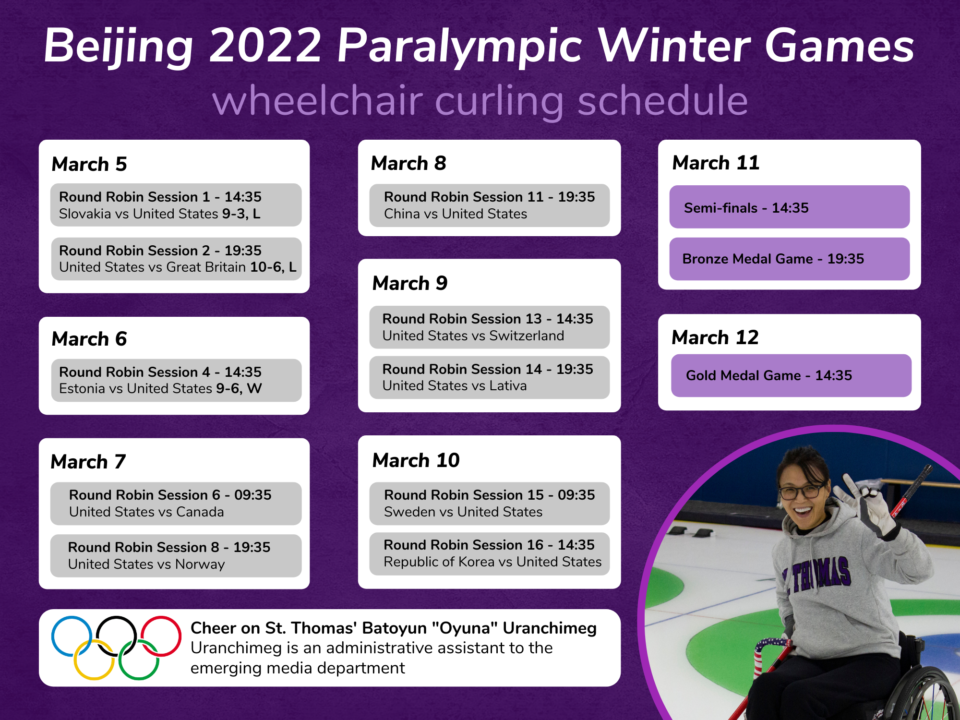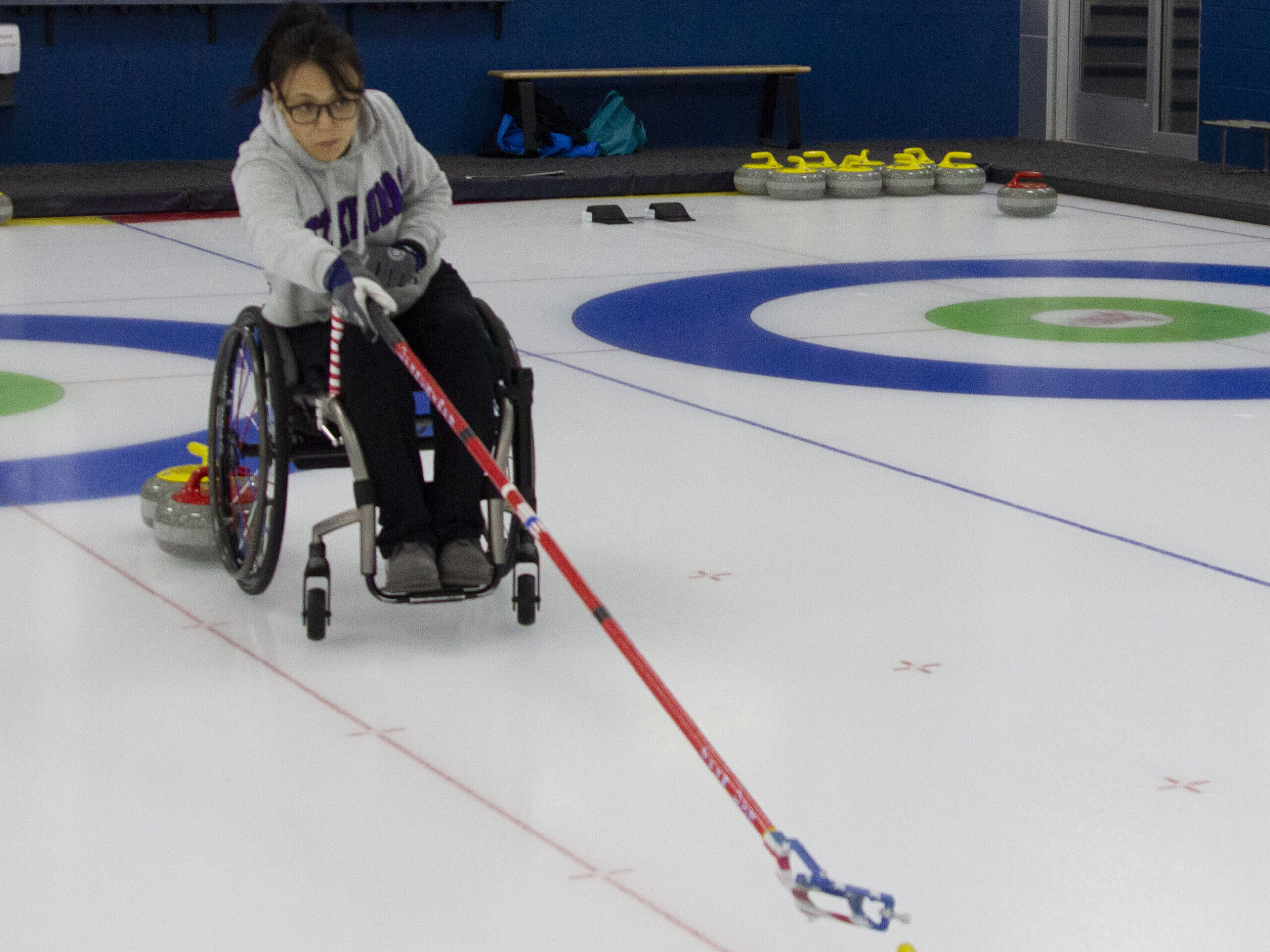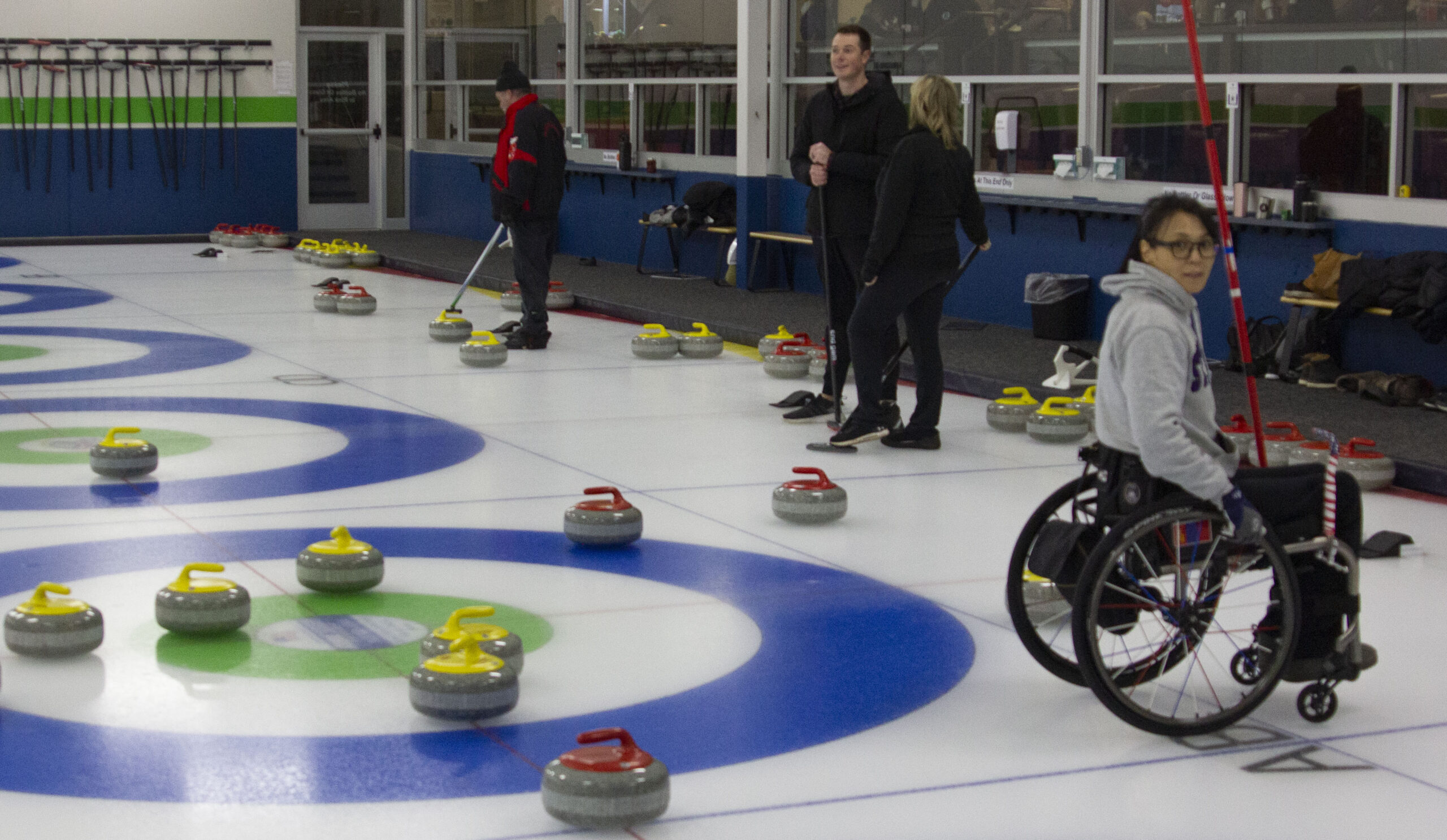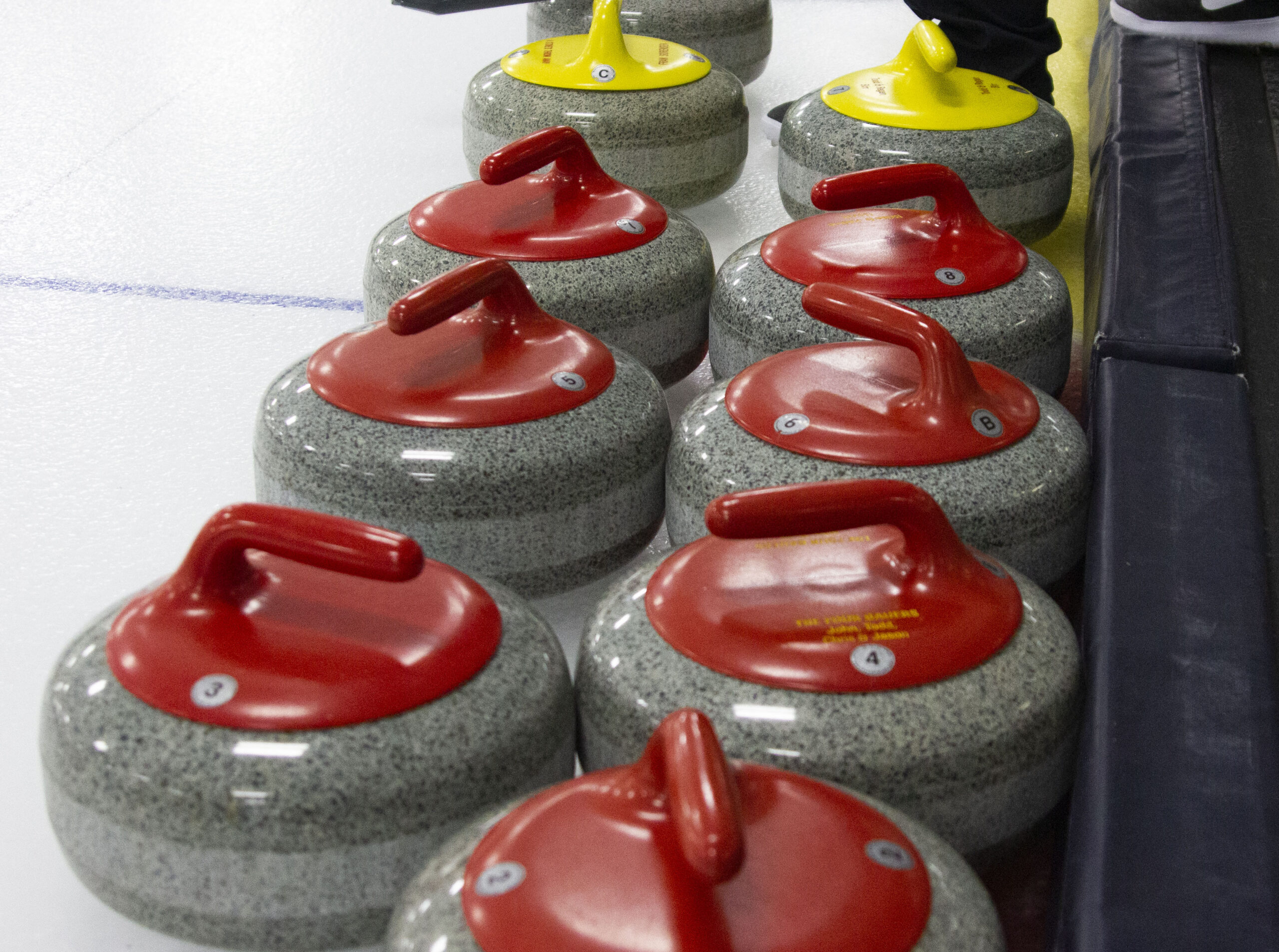Growing up, St. Thomas emerging media department staff member Batoyun “Oyuna” Uranchimeg could never have imagined competing in the Olympics for Team USA.
“It’s not like I grew up dreaming about it or anything like that, it just kind of came to me in the right time and the right place. The whole journey has been amazing and I think it’s not going to end here,” Uranchimeg said.
Uranchimeg, who is the first Mongolian American in history to represent the United States in any Olympic sport, will attempt to earn gold in wheelchair curling at the 2022 Paralympic Games March 4-13.

The Paralympic Games weren’t always on Uranchimeg’s bucket list, but in 2000, she sustained a spinal cord injury in a car accident during a visit to the United States that left her paralyzed from the waist down. The accident put her in a wheelchair for the rest of her life.
“That kind of changed my life trajectory,” Uranchimeg said. “I ended up actually staying in the United States because this was the most accessible place for somebody who’s in a wheelchair. If I were happen to go back to Mongolia, I don’t think I would have had any quality of life there.”
Nearly 16 years after the accident, in June of 2016, she got a message from a friend saying he had a surprise for her. He brought her to the Four Seasons Curling Club in Blaine, Minnesota, where a life-changing experience was waiting for her.
The U.S. National Paralympic Curling team was practicing there, and Uranchimeg would get to meet them. She “had no idea about curling” before that day, but “fell in love with it” right away.
“I was kind of lucky to have met the national team athletes and also the national team coach at my first encounter with wheelchair curling, so that kind of helped me to get more inside information about how I may get up into the competitive level,” Uranchimeg said.
After a few years of training, her coach Russel “Rusty” Schieber told her she had a good chance at making the 2022 Paralympic national team if she wanted it, so Uranchimeg decided to do everything in her power to make it happen.
She joined local curling clubs and joined adaptive curling programs like the one at Courage Kenny Rehabilitation Institute to home her skills. She usually practices at the Chaska Curling Center, which is the USA Curling National Training Center. She is also a member of the Four Seasons Curling Club.
Uranchimeg is grateful that she lives in Minnesota because of the athletic resources it has provided her.
“If you don’t live near the curling clubs, it’s really hard,” Uranchimeg said. “If you don’t have access to ice on a regular basis, forget about training. I think, in my case, things were kind of aligned well for me.”
With her children finally old enough to no longer require her constant attention and Uranchimeg needing something to occupy her outside of work, her friend’s gift of curling came at the perfect time.
All of her practice on the ice paid off in 2018 as Uranchimeg signed up for the national team selection pretrial and made the team. However, she had to keep working, as she was originally listed as an alternate for the 2021 World Wheelchair-B Curling Championship in Beijing. The 2021 championships were also at the same facility that Uranchimeg will compete in while in Beijing for the Paralympics.
By chance, Uranchimeg got to compete in most of the tournament, helping Team USA earn a gold medal and advance to the World A Championships, which is where teams can officially qualify for the Paralympics.
The team earned fourth place, just shy of a bronze medal. But it was just right for 2022 Paralympic qualification.
After finishing just short of the coveted hardware, Uranchimeg said her team is prepared to bring back a medal for Team USA.
“All of us came back very confident and even more determined to bring back the medal — some kind of medal — but preferably the shiniest one,” Uranchimeg said.
Being an Olympic athlete may come with plenty of free clothing and travel, but Olympic athletes do not technically get paid to compete, nor do they get paid by their jobs while gone. So, communication studies professor Debra Petersen has dedicated her family’s annual party to fundraising money to support Uranchimeg’s expenses for the past two years.
Petersen said Uranchimeg has become a party favorite and, although she was unable to attend the second fundraiser party, people were still asking about her.
“It was so cool because people who had met her the year before were like, ‘Why isn’t she here?’ and ‘What’s next with Paralympics?’ And so she’s become part of our larger friend group as well,” Petersen said.
Petersen hopes Uranchimeg’s journey to being a Paralympic athlete will bring more attention to the Paralympics and people with disabilities on campus.
“This is really exciting that we’ve got someone in the Paralympics, and I hope that it just opens people’s minds, too. A lot of people don’t even know what Paralympics are,” Petersen said. “I think that it’s going to carry with people, too, that level of awareness and thinking about their lives at St. Thomas and outside of St. Thomas and thinking about accessibility.”
Petersen said she is “very proud” of Uranchimeg and said Uranchimeg is “humble” about her accomplishments.
“It’s really important to say just how humble she is about all of this,” Petersen said. “Most people would not know this because she doesn’t shout it from the rooftops.”
Despite being humble, Uranchimeg is thrilled to be competing in the Paralympics.
“I’m just so excited and really looking forward to the experience even though it is happening during the COVID times,” Uranchimeg said. “Just the fact that it’s actually happening and not being postponed or not being canceled is a huge relief for us.”
Cam Kauffman can be reached at kauf8536@stthomas.edu.
Sam Larson contributed to this report.





Thanks for bringing UST’s attention to this great colleague and terrific athlete. I hope that Oyuna is feeling our excitement and support in Beijing!